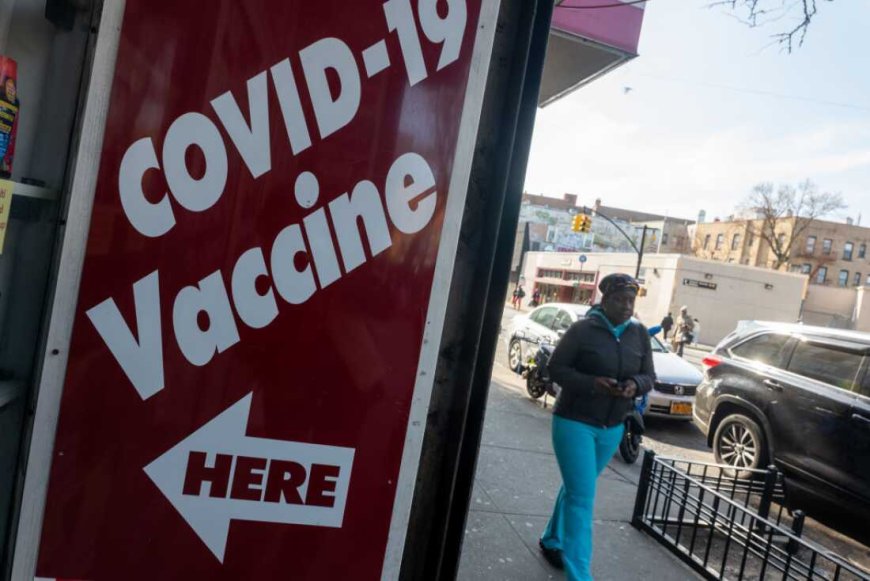Vaccines in the United States Today: News and Developments

Vaccines remain a critical part of the healthcare conversation in the United States. In 2025, the discussion continues to evolve with new developments in technology, public health strategies, and federal regulations. From COVID-19 booster campaigns to rising concerns about measles and RSV, vaccines play a pivotal role in disease prevention and public safety.
Current Vaccine Landscape in the U.S.
The United States continues to lead in vaccine development, accessibility, and innovation. As of mid-2025, the Centers for Disease Control and Prevention (CDC) and the Food and Drug Administration (FDA) have approved numerous vaccines targeting both common and emerging illnesses. The COVID-19 pandemic permanently changed the national attitude toward vaccines, increasing awareness and demand for preventive healthcare.
Routine immunizations for children and adults remain a priority, with updated schedules released annually by the CDC. These include vaccines for diseases such as influenza, tetanus, pertussis, hepatitis, HPV, and more. Seasonal flu vaccinations are also being administered widely, and there are active campaigns for shingles vaccines among older adults.
Latest Vaccine-Related News
1. COVID-19 Booster Updates
The latest COVID-19 booster, tailored to the XBB.1.5 and JN.1 variants, was rolled out in early 2025. Uptake has improved thanks to simplified eligibility guidelines and targeted awareness campaigns. Pharmacies and clinics nationwide offer walk-in vaccinations, often paired with flu and RSV shots for efficiency.
2. Rising RSV Vaccination Rates
For the first time in U.S. history, the RSV (respiratory syncytial virus) vaccine is being widely administered to adults over 60 and pregnant women. Approved in late 2023, its distribution expanded in 2024 and 2025 following evidence of high efficacy in preventing hospitalizations in infants and the elderly.
3. Childhood Vaccine Exemptions and Measles Outbreaks
A growing concern in 2025 is the resurgence of measles in communities with high vaccine exemption rates. Several outbreaks in states like Ohio, Texas, and Florida have reignited debates about non-medical exemptions. Public health officials are now working with schools and local governments to address misinformation and encourage compliance with immunization requirements.
Vaccine Recommendations by Age Group
The following table summarizes key vaccines recommended for different age groups in 2025:
| Age Group | Recommended Vaccines |
|---|---|
| Infants (0–2) | Hepatitis B, DTaP, Polio, Hib, Pneumococcal, Rotavirus, MMR |
| Children (3–12) | MMR, Varicella, DTaP, Influenza, COVID-19 (as needed) |
| Teens (13–18) | HPV, Meningococcal, Tdap, Influenza, COVID-19 booster |
| Adults (19–64) | Influenza, COVID-19 booster, Tdap, HPV (if not completed), MMR |
| Seniors (65+) | Influenza, COVID-19 booster, RSV, Shingles, Pneumococcal |
| Pregnant Women | Tdap, Influenza, COVID-19 booster, RSV |
Challenges and Opportunities
Despite remarkable progress, the U.S. faces several challenges and opportunities in its vaccine strategy:
Challenges:
-
Vaccine Hesitancy: Fueled by misinformation on social media, hesitancy remains an obstacle to reaching high coverage.
-
Equity in Access: Rural and underserved communities still struggle with vaccine access due to limited infrastructure.
-
Changing Variants: COVID-19 continues to mutate, requiring constant updates to vaccines.
Opportunities:
-
New mRNA Platforms: The success of mRNA technology in COVID-19 vaccines is now expanding to flu, RSV, and even cancer trials.
-
Digital Vaccine Records: Many states are implementing digital vaccine certificates for easier access and tracking.
-
Public-Private Partnerships: Collaborations between federal agencies and pharmaceutical companies are accelerating R&D.
How to Stay Informed and Protected
To remain protected and informed, individuals should consider the following:
Checklist for Vaccine Awareness:
-
Check your immunization record annually.
-
Consult with your healthcare provider about new vaccine recommendations.
-
Get seasonal shots, including flu, COVID-19 boosters, and RSV if eligible.
-
Traveling abroad? Review CDC travel vaccine advisories.
-
Stay updated with CDC announcements and your state health department’s website.
Conclusion
Vaccines are a cornerstone of public health in the United States. As scientific advancements continue to reshape what's possible, staying informed and proactive is more important than ever. With updated boosters, new RSV options, and strengthened vaccine schedules, the U.S. is positioned to improve both individual and collective health outcomes.






























